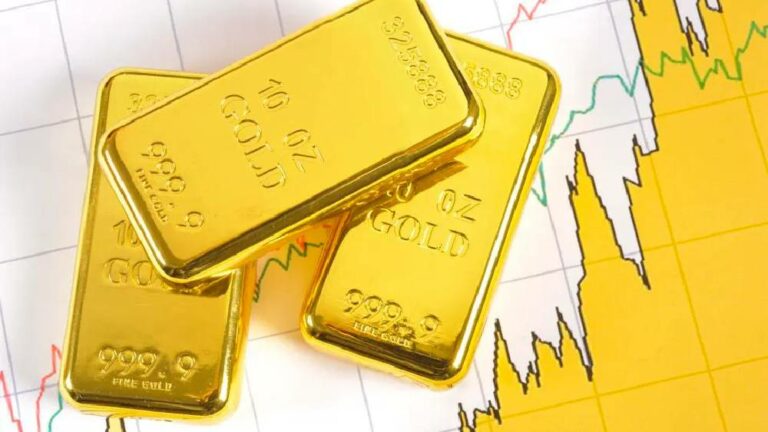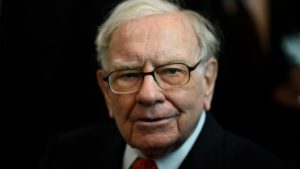The gold industry is thriving, as this yellow metal is highly coveted and usually appreciates over the long term. So, who are the individuals and families that own the most holdings of gold in the world? Secondly, how much gold is there in the world? However, there’s only a finite supply of gold in the world. The World Gold Council reports an estimated 208,874 metric tons of gold mined worldwide. Even knowing that, it’s impossible to estimate how much gold in the world remains. While there is plenty, much of this physical gold is too deep to mine. Experts estimate that at a rate of 3,000 metric tons per year, the world’s currently accessible gold will have all been mined in less than 18 years unless new mines are discovered.
Private Owners
John Paulson is an American hedge fund manager and billionaire famous for having one of the world’s biggest privately owned gold reserves. He’s also well known for predicting the 2007 mortgage financial crisis and has made headlines for his mammoth-sized gold holdings through his firm, Paulson & Co. Stanley Druckenmiller is a legend in the investing world. Like John Paulson, he predicted in 2005 that the Federal Reserve would trigger a housing crisis and economic collapse. In 2015, he had more than $292 million in exposure to the SPDR Gold Trust.
Ray Dalio is another of the most famous gold buyers and owns one of the largest private gold reserves in the world. He’s the founder and co-chief investment officer of Bridgewater Associates, which manages $150 billion in assets. Eric Sprott, a Canadian, is another of the world’s most prominent investors in gold. He has invested vast amounts of money in precious metals, including gold mining and exploration companies like Labrador Gold, Benchmark Metals, Ethos Gold, and New Age Metals.
Indian Families
Indian households have some of the largest gold reserves in the world. Most of these are in the form of gold jewelry, which is primarily for weddings and Diwali festivals. Indian families have roughly 25,000–27,000 tons of gold.
The Royal Family of Saudi Arabia
The royal family of Saudi Arabia is well known for being unimaginably wealthy and having some of the largest gold reserves in the world. They’re lavish spenders, with a reported net worth of approximately $1.4 trillion.
Notable Advocates for the Gold IRA
Gold IRA refers to a specialized individual retirement account that allows investors to hold gold as a qualified retirement investment. Investors with gold IRAs can hold physical metals such as bullion or coins, as well as precious metals-related securities within the portfolio. James Rickards advocates for investing in gold and precious metal IRAs. He is an investor, advisor, and lawyer who frequently lectures on why one should buy gold and allocate about 10 percent of their wealth portfolio to precious metal investments. He was also the primary negotiator for the Federal Reserve when it rescued Long-Term Capital Management.
Robert Kiyosaki, an American investor and the founder of the Rich Dad Company, has long been a proponent of investing in physical gold. He’s a financial advisor who aims to help people achieve financial independence through wise investing. Another of the most prominent gold investors and advocates for precious metals and gold IRAs is Laith Alsarraf, who founded Birch Gold Group. He believes in empowering people and financial strength through knowledge, and is one of the well-respected businessmen in the IRA industry.
Countries Having Largest Gold Reserves
The U.S. Federal Reserve has the highest gold reserves in the world, thanks to its switch from the gold standard a few decades ago, when citizens could redeem national currency for gold. Country’s gold reserves are around 8,133.5 metric tons. Furthermore, 75 percent of its foreign reserves are in gold as well. Second on the list is Germany, with 3,359 metric tons of gold. German investors are also rapidly investing in more gold than in previous years and are becoming some of the largest global investors in gold.
In the third position is Italy, with 2,452 metric tons. Other countries with large gold reserves include China, France, and Russia. Interestingly enough, the United States is considering freezing Russian gold reserves over the war in Ukraine. International Monetary Fund also has some of the largest national assets, with official gold holdings at around 90.5 million ounces. The European Central Bank has also been buying more gold reserves.
Is there a benefit to buying private gold instead of government-backed bullion? While the primary advantage of government bullion is its security and stability, it’s also far more expensive, mainly if it’s collectible. With private gold, investors can avoid those extra costs. Government bullion has a guarantee, so investors know their gold’s precise weight and purity, unlike private purchases.
Private Gold Ownership Affect Prices
If someone has a large privately owned gold reserve, does that affect the price of gold? Of course, as only a finite amount of gold is left in the world, the price will increase once supplies begin to dwindle, according to the law of supply and demand. The availability of gold imports also affects prices, as developing countries that mine the metal often have supply-chain issues due to political reasons like civil war. A nation with a slightly weakened currency can also impact the export industry, increasing it by a large margin. In addition, factors like inflation, the central bank actions, and the mining industry also affect prices. Historically, when the stock market and paper assets decrease, the price of gold increases.
Investing in Digital Gold
Digital gold is sold by vendors who have partnered with fintech companies, banks and brokerage houses to enable digital gold purchases. Digital gold providers help you purchase gold through electronic payments and they hold your gold in the physical form at a secured vault on your behalf. The seller of digital gold should ideally have an independent SEBI-registered trustee who audits and confirms the gold holding each month. The pricing varies among digital gold providers as it would depend whether the price is based on 995, 999 or 9999 carat purity.
Buying digital gold is similar to buying gold in a jewelry store and can be redeemed 24/7. The digital form of gold is kept in a demat account making it less prone to any form of theft and fairly cheaper than storing physical gold that invites locker charges as well as insurance cost for using a safe or a vault. However, it is important for investors to carry out due diligence on the integrity, credibility, reputation, and business model of the digital gold provider to avoid any risk. Hidden charges are another factor to consider before investing into the instrument.
Gold Exchange Traded Funds (ETFs)
Gold ETFs (Exchange traded funds) are funds that invest in gold and can be bought and sold on stock exchanges, like common stock. Investors are required to purchase a minimum of one unit that is equivalent to one gram of gold to begin trading in gold ETFs. Popular gold ETFs include Birla Sun Life ETF, HDFC Gold Exchange Traded Fund, UTI Gold Exchange Traded Fund, Reliance Gold Exchange Traded Fund and Axis Gold ETF among others. Starting a systematic investment plan (SIP) is also a planned way to invest in ETFs. Once the investor holds a sizable number of units, conversion to physical gold is also possible.
Gold Mutual Funds
Certain mutual funds base their holdings on stocks of international gold mining companies and gold ETFs. These mutual funds track the price of gold as the assets they own rise and fall in value. Invesco India Gold Fund, SBI Gold, Nippon India Gold Savings Fund, DSP World Gold Fund and Kotak Gold count among gold mutual funds in India. They charge an expense ratio, a charge for managing the fund.
Gold Futures Contracts
MCX and NCDEX are exchanges for gold futures trading. The investor makes a commitment to buy or sell a specific quantity of gold at an agreed price in the future. These gold futures contracts have to be honored by investors by either purchase or sale in anticipation of a profit or loss. In any case, the settlement of the contract happens at an expiry date and the investor is free to buy, sell or hold the contract till expiry.
Sovereign Gold Bonds (SGBs)
The Government of India offers sovereign gold bonds via the Reserve Bank of India. These bonds aren’t popular though they are considered lucrative given their sustained return on investment.




















